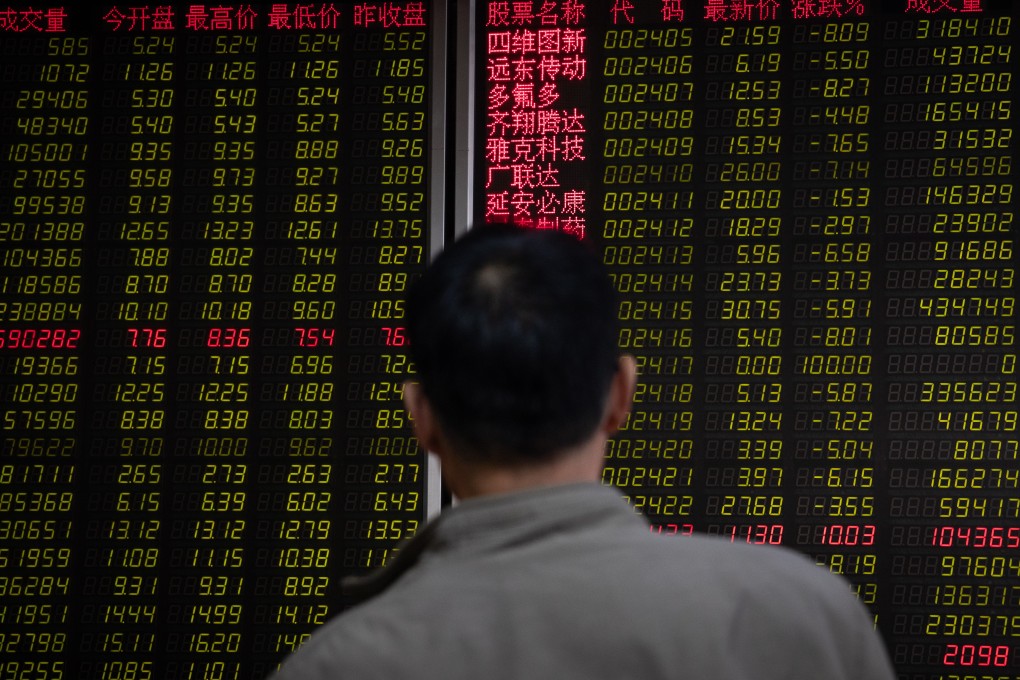Smart money pulls out of China’s equity market via Hong Kong as hopes of trade war’s resolution fade to gloom
- Overseas funds pull out of China’s stock market at a faster pace in the past few weeks after US President Trump threatened to escalate tariffs
- But analysts still predict continued capital influx over a longer term, with an inflow of 200 billion yuan to 400 billion yuan for 2019 after MSCI and FTSE’s separate inclusion of A shares

Smart money is accelerating its pullout from China’s equities after riding Asia’s largest stock market to its crest in the first three months of 2019, as hopes of a resolution in the year-long US-China trade war gave way to pessimism about economic and earnings growth amid the impasse in the row.
That followed last week’s 17.41 billion yuan outflow and April’s net outflow of 18 billion yuan, after a record first quarter when net inflows of 125.4 billion yuan rode the Shanghai Composite Index to a 23.9 per cent surge as the biggest winner out of 94 global benchmarks.
“The pace and continuity of northbound outflows are quite unusual,” said Liu Xiaotong, an analyst for Shenzhen-based Guosheng Securities. “It shows overseas institutional investors are widely pessimistic about the prospect of the trade war, which is currently the key driver of the market sentiment.”
The outflow partly explains why Shanghai’s benchmark index had deteriorated from the world’s biggest gainer in the first quarter to the sixth-biggest loser since March 29 with a 6.4 per cent decline.